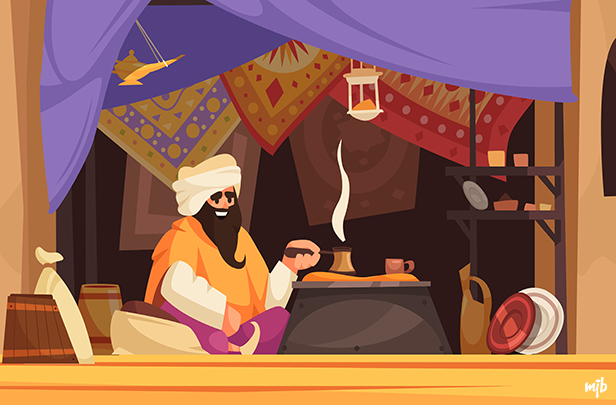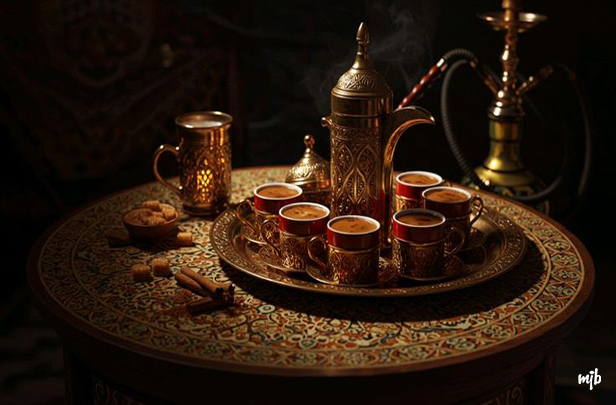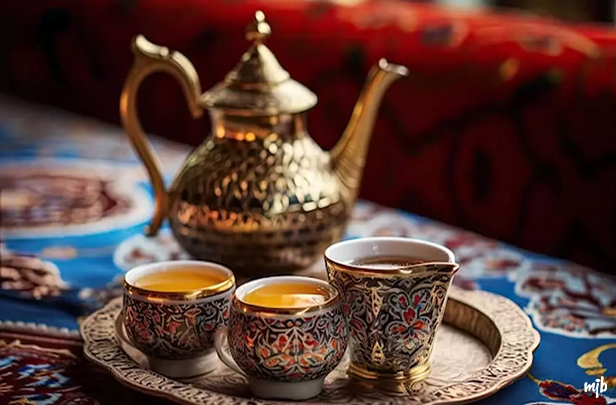
Wednesday, 23 July 2025
Arabic Coffee
Arabic Coffee: A Timeless Ritual Rooted in Tradition
Arab culture is widely known for its deep respect for ancestral customs and traditions. This respect is not limited to major ceremonies or social values—it extends to the small, daily rituals as well. Among the most iconic of these is the preparation and serving of Arabic coffee. More than just a beverage, Arabic coffee is a cultural symbol of hospitality, generosity, and identity.
How Is Arabic Coffee Prepared?
The process begins with roasting raw green coffee beans in a traditional tool called a mehmas, a metal tong-like roaster, over gentle heat. This step is often done by hand and sometimes performed in social settings, turning it into a ritual in itself. Once roasted, the beans are ground with a manual mortar and pestle, preserving the natural aroma and flavor.

Brewing Arabic Coffee
When water reaches a boil in a large pot, the ground coffee is added and simmered for 10–15 minutes. Cardamom is typically added for its unique aroma, while other spices like cloves, saffron, or cinnamon may also be included depending on local traditions and taste preferences. The coffee is not filtered; instead, it’s poured directly from the dallah (traditional pot), leaving the grounds at the bottom.
Serving Etiquette
Serving Arabic coffee follows precise customs. The dallah is held in the left hand and the small finjān (cup) in the right. Often, the host drinks first to show goodwill. Cups are filled only one-third of the way, and guests lightly shake the cup if they do not wish for a refill. Dates or raisins are often served alongside to balance the coffee's natural bitterness, since it’s brewed without sugar.

Cultural Significance
Arabic coffee plays a central role in both everyday life and formal occasions. Whether it’s a wedding, a mourning ceremony, a tribal gathering, or a business meeting, serving coffee symbolizes respect, welcome, and rootedness in cultural heritage. It is a bridge between generations and a ritual that continues to unite hearts across the Arab world.






